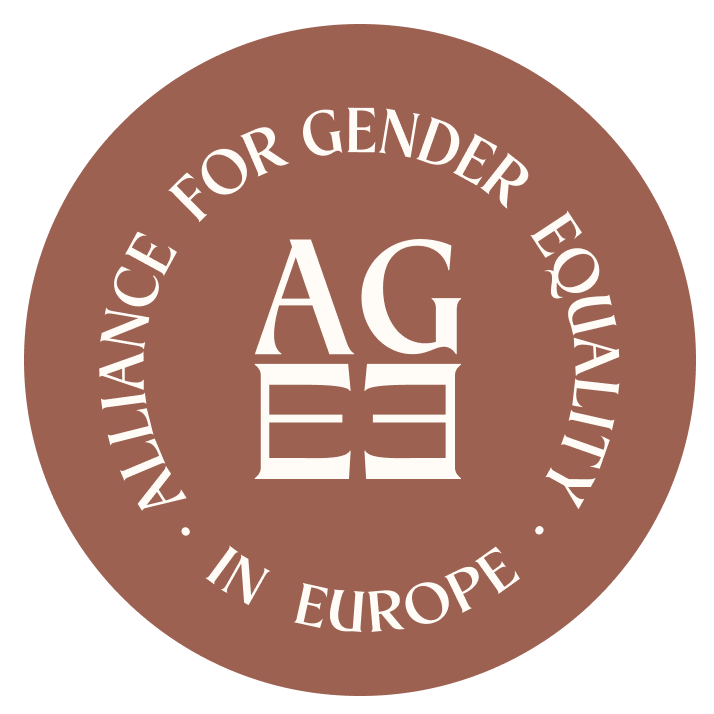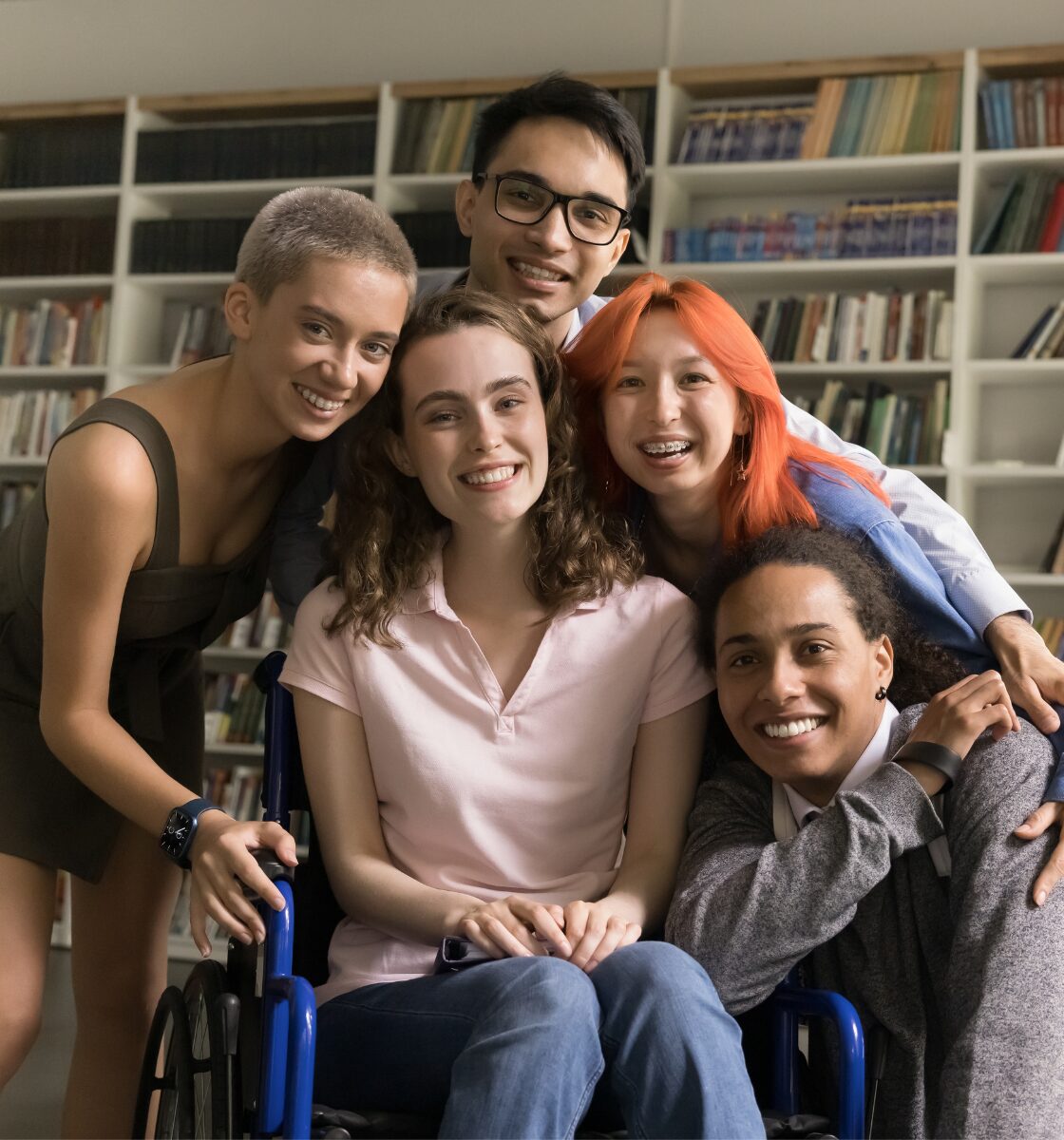Since our inception in 2021, the Alliance has distributed over 4 million euros in grants, supporting small, frontline organisations in achieving gender equality. Crucial to our work of resourcing organisations and communities often excluded by traditional philanthropic funding has been the integration of intersectionality into our grantmaking.
In this post, we share our approach to intersectionality and our future goals of putting our values into action as part of a longer story of self-reflection, dialogue and learning.
What is intersectionality?
Intersectionality is a way of thinking about how a person’s characteristics (gender, race, sexuality, age, migration status, disability etc.) interact to create unique experiences of oppression and discrimination. For example, a lesbian woman of colour may face discrimination differently than white or straight women.
Intersectionality also recognises that policies, systems and structures in which we live do not affect people in the same ways. For instance, poverty and health tend to affect someone’s ability to find and maintain a job. At the same time, women’s involvement in the workforce relies on the availability of quality and accessible childcare.
Those at the forefront of change are increasingly bringing an intersectional feminist perspective to their work. They do this by both making their movements more inclusive, while also linking diverse struggles, such as anti-racism and climate justice, to gender equality.
Why is intersectional grantmaking important?
While most activism focuses on multiple issues and identities, not enough funding does.
Research by the Human Rights Funders Network found that most grants (read PDF document) focus on one issue and one population. Only a small fraction of human rights funding address multiple issue areas or identities.
When we look at funding for women and girls, we see that around half of grants consider at least one additional identity, but only a tenth of grants (read PDF document) name racial and ethnic groups, 7% reference (read PDF document) migrants and refugees, and 2% include (read PDF document) women with disabilities.
Funding also remains thematically siloed. Approaching issues like sexism, climate change, and migration as separate areas makes it harder to understand the complex forces shaping the experiences of those impacted by them.
[Lesbian, bisexual and queer]-led organisations reported that they experience difficulty in accessing funding outside traditional LGBTIQ-focused portfolios—such as funding to advance racial justice, economic justice, youth and children’s rights—although they work in these areas.
Mama Cash. You can read the full report by downloading the PDF here.
While every grant cannot address the unique needs of every individual or tackle every societal problem, the aim of intersectional funding is to acknowledge that we face complex, interconnected challenges and to understand people’s experiences holistically.
By cutting across multiple communities or issues, philanthropists can reach frontline communities most impacted by oppression, leaving no one behind. Funding with this lens ensures resources meet the needs of changemakers who are tackling the root causes of injustice.
Our approach
Our learning journey began before our first call for proposals. Through interviews, surveys, and meetings with gender equality organisations, women’s funds, and philanthropic colleagues, we gained a better understanding of how intersectional grantmaking can respond to the needs of communities on the frontlines of change.
These initial conversations informed our holistic, inclusive and intersectional framework. Since then, we have supported solutions that address the underlying structures and power dynamics that uphold inequality and exclusion, based on a belief that individual empowerment goes hand-in-hand with pushing for systemic change.
Who we fund
Our strategy prioritises small to medium-sized frontline organisations that often fall through the cracks of traditional funding structures. We focus on the most marginalised groups in the context of gender equality, including women, trans, non-binary, and gender non-conforming individuals who are:
- Low-income
- From migrant backgrounds and/or ethnic minorities
- Victims of violence
- Residing in rural or disadvantaged areas
- Living with disabilities
- Perceived as young or old
For instance, our support for SOS Racismo involves training young women of colour to enhance their job market prospects through a blend of peer learning, coupled with anti-racism campaigning.
What we fund
Intersectional grantmaking isn’t just about who is funded. Since launching our donor collaborative, we have run two rounds of grantmaking: our 2021 COVID Solidarity Fund (read PDF document) and our 2023 Economic Opportunities Fund, both offering grants to organisations with a gender transformative approach working on a wide range of thematic issues, including:
- increasing access to economic opportunities and defending the rights of women in the workplace
- advancing LGBTQIA+ people rights
- supporting women victims of violence
- providing mental health and wellbeing support
- promoting a green and circular economy
- boosting the representation of women in art and journalism
- offering legal advice on labour and immigration law
We also prioritise community-led initiatives and participatory approaches to ensure that those most affected by inequality are at the forefront of creating solutions.
How we fund
But our commitment does not stop at financial support. We are dedicated to aligning with trust-based grantmaking principles.
Trust is not a given; it needs to be nurtured over time and goes both ways. As funders, we have a responsibility to build a more equitable nonprofit sector based on transparency, authentic dialogue, and mutual learning.
To foster trust, we get to know the frontline community leaders we work with, the contexts they work in, and the challenges they face. We also regularly solicit feedback about how to improve the support we give them – and then act on it whenever possible. We aim to be honest about our plans and limitations.
Supporting solutions to structural issues requires core funding, not just project funding, which we now provide for two years. In the spirit of openness, we recognise that there is more work ahead of us in making our funding unrestricted and more long-term.
As we support small, frontline organisations who are close to the problems they seek to address, we are reducing barriers to participation by simplifying and adapting application, management, and reporting processes to better correspond to their capacities, as well as offering coaching to applicant organisations that are new to fundraising.
It is important to us to go beyond the check. This means we also provide needs-based organisational development opportunities, build collaborations, and foster collective learning.
Continuous learning
Learning has been a part of our DNA since the very beginning, and we believe that integrating intersectionality is a journey, not a destination.
We continuously self-assess our work and adjust strategies and practices accordingly, taking inspiration from best practices (read PDF document) in the philanthropic field.
Learnings are possible because of our openness to changing our way of working and, little by little, our way of thinking. We now know that we need to invest time and resources to do things differently. That beautiful things, such as diverse women coming together to advocate against racism, will continue happening if we continue listening and building mutual trust.
Marga Morales, Greta Frankenfeld, and Fiona Montagud, Calala Women’s Fund.
Quote taken from a Human Rights Funders Network’s blog post. Read the full version by reading the blog post here.
Recognising that there is a lot of expertise in the field, we want to continue to draw on this collective wisdom and come together in conversation and practice together, including with our members, partners and advisory committee.
The next steps in our learning journey include exploring possibilities to fund broader movement building and partnering with funders from other sectors to break down silos.
While a growing number of philanthropic institutions recognise the importance of intersectional approaches to grantmaking, this understanding has not yet translated into a larger shift in funding flows. We hope to change this, one conversation at a time. Intersectionality is not just a buzzword; it is about supporting cross-movement and cross-sector initiatives and making sure that no one is left behind.

